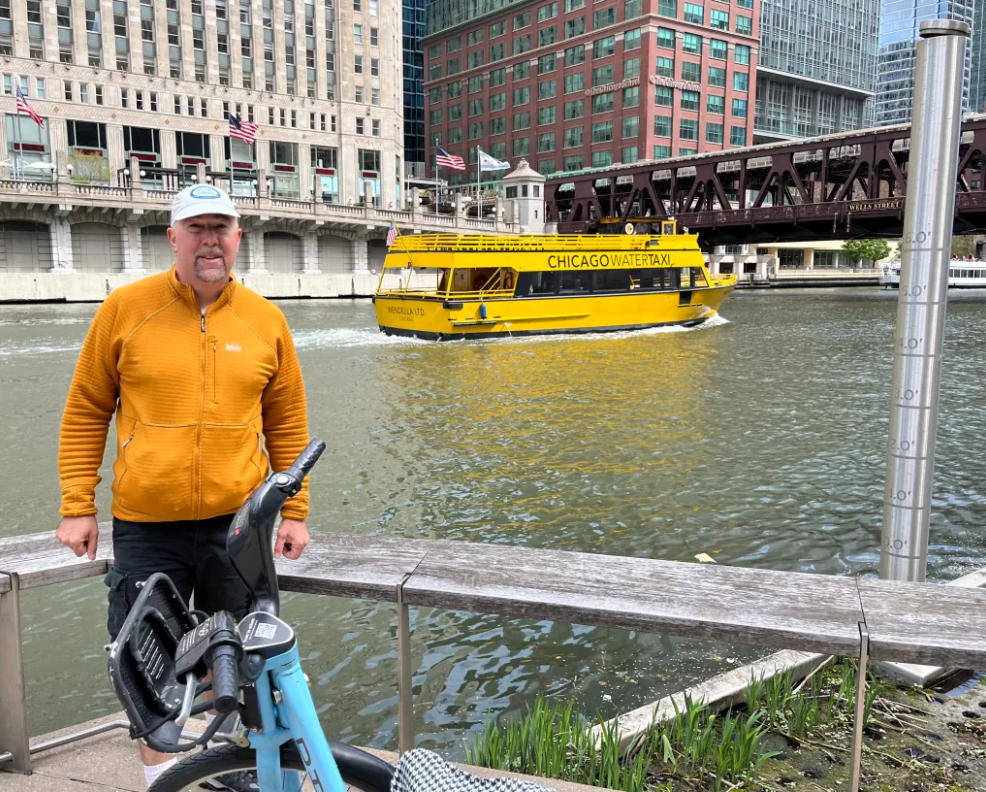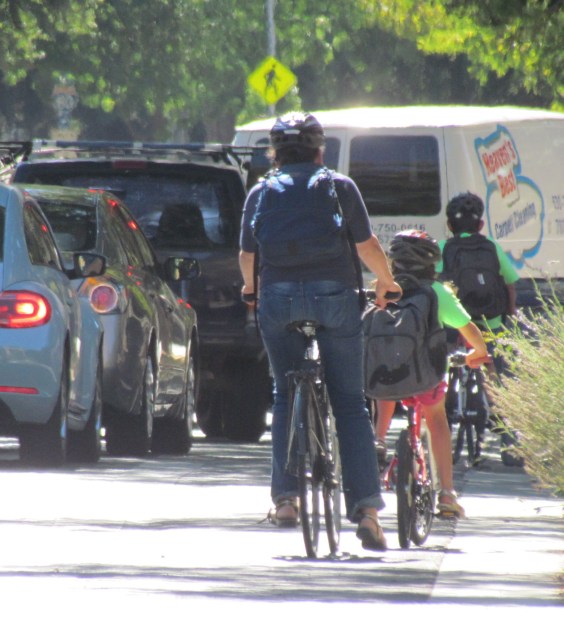Transit Agency Representatives Push “Protect Local” Ballot Initiative
2:19 PM PST on February 17, 2010
 The California State Capitol in Sacramento. Flickr photo: Paraflyer
The California State Capitol in Sacramento. Flickr photo: ParaflyerWith the continued raids on voter mandated transit funding sources to plug holes in California's general fund, representatives from the state's many transit agencies and locally elected officials are pushing for a sweeping ballot initiative this November, one which supporters say would finally put an end to the raids, and force lawmakers in Sacramento to come up with solutions to their fiscal nightmare that don't come from the backs of transit riders.
As volunteers sweep the state gathering the anticipated 1.2 million signatures needed to comfortably qualify the ballot measure, transit agency lobbyists are also campaigning to drum up support from member organizations and advocacy groups concerned with what some have called the Death of Transit.
Proponents of the initiative, formally known as the Local Taxpayer, Public Safety, and Transportation Protection Act of 2010, sought support from TransForm, a transit and smart growth advocacy non-profit that has yet to take a position, at a meeting also attended by representatives of regional transit agencies like Muni, AC Transit, and the Valley Transportation Authority (VTA).
Joshua Shaw, Executive Director of the California Transit Association (CTA) and Amy O'Gorman, Regional Public Affairs Director at the League of California Cities, which represents local elected officials like city councilors, urged TransForm and its member organizations to do everything they can to support the initiative and get the word out, even if they haven't formally taken a position.
"Over the last several years, too many bad decisions have been made in
Sacramento, not just in transit, but in local issues in general," said CTA's Shaw. "Just like any other vital local service, transit is a subsidized service and it's up to the state to maintain that function."
According to Shaw and O'Gorman, since 1992, state lawmakers have taken $11.2 billion in locally approved tax measures for the general fund, $5 billion of that coming from transit funding sources in the last ten years alone. Other diversions since 2004 have come from local property taxes and redevelopment agencies - $4 billion, according to O'Gorman, who said infill and smart growth development projects are often funded with this local money.
O'Gorman listed numerous polls that show the public is distrustful of Sacramento even while local tax measures continue to pass with high margins. "As distrust in state government continues to erode, confidence in local government continues to remain high," said O'Gorman. She also said the public doesn't realize that many of the measures they pass have loopholes that state lawmakers continue to abuse.
"There was an ongoing assumption that these locally levied taxes were
constitutionally protected, but they're not," said O'Gorman. "This measure revokes the state's authority to borrow local property tax."
The ballot measure would also set up an automatic appropriation mechanism when local entities sue under the law to prevent local raids. This would be significant in lawsuits like the recent CTA filing against the governor and the legislature, where the California Supreme Court found that $3.5 billion of the transit funds was diverted illegally and must be paid back. Without a means to force the state comptroller to appropriate the funds, however, Shaw said they can't currently make the state return the money.
Even more twisted, rather than heed the judicial branch, lawmakers and the governor are currently moving forward with a plan that would eliminate the sales tax on gasoline, which has triggers that provide funding for transit, and raise the excise tax on gasoline (commonly referred to as the gas tax). Because the excise tax has no mandate for transit funding, said Shaw, the state would simply remove its obligation set forth by voters to fund transit.
"They're finding loopholes in the constitution, they're finding
loopholes in the statutes and just plain going against their word," said Shaw, who argued transit should be one of the tools in the state's toolbox for fighting global warming as mandated by Assembly Bill 32. The Protect Local initiative "literally walls off money from being diverted," said Shaw.
Even the new State Senate proposal, which lawmakers are pitching as local control of transit dollars by maintaining the sales tax on diesel, in reality eviscerates transit funding, said Shaw. While the diesel tax would likely save $300 million for transit, more than $1 billion would be lost with the elimination of the sales tax on gasoline.
When asked how this measure would be any more effective than previous measures that have been trampled on by lawmakers, Shaw said the wording of the initiative is very simple and stark, "using language like shall and may not." It also provides a simple definition of what public transit is, an issue that came up in the CTA lawsuit as the state tried to distort the definition to justify its diversions. Finally, said Shaw, the appropriation provision would be significant. "Of course, the State Controller could just decide not to cut the check," admitted Shaw, "and then we'd have to decide whether to sue him or not."
While Shaw and O'Gorman admitted that governing by ballot measure
was not the ideal way to run a state, they felt this measure was needed
or transit agencies and other vital local services would continue to
deteriorate.
"In my view, it's a stopgap, but it's a vital stopgap," said Shaw.
Asked to anticipate who would potentially be opposed to the measure, Shaw said that he was aware of only one group, the California Professional Firefighters, that had voiced opposition and he suspected that was more to do with a previous issue they had with the League of California Cities.
"It's obvious what [opponents] will say the downside is, that we will exacerbate the fight between the state and local groups," said Shaw, who speculated that unions at the state level, such as the California Teacher's Union, might be opposed because they benefit from the transit funds spent on education.
"There is no particular tax that is designed as the education tax, so you might hear teachers say that this will diminish funding from schools. But the state legislature and the governor should have never put these funds into the general fund in the first place. That was just kicking the can down the road."
Stay in touch
Sign up for our free newsletter
More from Streetsblog San Francisco
Streetsblog SF editor Roger Rudick offers constructive criticism of Chicago’s downtown bike network
"There were blocks that felt very safe and very secure," he said. "But then you're immediately – voom! – disgorged into three lanes of moving traffic with no protection."
Commentary: There is Zero Ambiguity to the West Portal Tragedy
What happened in West Portal was entirely predictable and preventable. The city must now close Ulloa to through traffic and make sure it can never happen again




